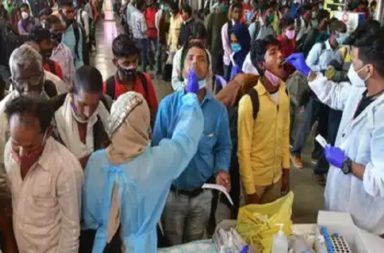With the reopening of schools around the world, the latest figures from the WHO / UNICEF Joint Monitoring Program (JMP) show that 43% of schools around the world lack access to basic handwashing with soap and water in 2019. According to the report, around 818 million children lack basic handwashing facilities at their schools, which puts them at increased risk of COVID-19 and other transmittable diseases. More than one-third of these children (295 million) are from sub-Saharan Africa. In the least developed countries, 7 out of 10 schools lack basic handwashing facilities and half of the schools lack basic sanitation and water services.
“Global school closures since the onset of the COVID-19 pandemic have presented an unprecedented challenge to children’s education and wellbeing,” said Henrietta Fore, UNICEF Executive Director. “We must prioritize children’s learning. This means making sure that schools are safe to reopen – including with access to hand hygiene, clean drinking water and safe sanitation.”
For young people without clean water, decent toilets and handwashing facilities (WASH) in their schools, it’s normal for them to miss their lessons to walk long distances to collect water or use bushes on the school ground to go to the loo in the open. Overall, one in three schools worldwide had either limited drinking water service or no drinking water service at all.
“Access to water, sanitation and hygiene services is essential for effective infection prevention and control in all settings, including schools,” said Dr Tedros Adhanom Ghebreyesus, WHO Director-General. “It must be a major focus of government strategies for the safe reopening and operation of schools during the ongoing COVID-19 global pandemic.”
The report identifies several resources necessary for COVID-19 prevention and control in schools, including 10 immediate actions and safety checklists. It builds on guidelines on the safe reopening of schools issued by UNESCO, UNICEF, WFP and the World Bank with practical advice for national and local authorities on how to prepare for safe school reopening and keep children safe when they return to school. UNICEF and WHO are committed to achieving equitable access to adequate WASH services worldwide. The agencies recently launched a joint initiative, Hand Hygiene for All, to support the most vulnerable communities with the means to protect their health and environment.





